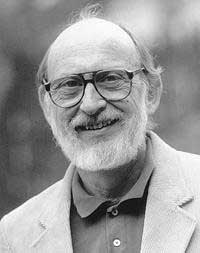-
- Florida Senate candidate denounces reports that he is gay
- Gephardt’s lesbian daughter will campaign full time
- United Church of Christ professor says Jesus was actively gay
- GenderPAC unites theory and lobbying for equality in D.C.
- Jesuit schools create gay-supportive ‘Ally’ program
- Gay couple with quadruplets expecting again
- Catholic award denied to lesbian educator in Minneapolis
- National News Briefs
- World News Briefs
national
United Church of Christ professor says Jesus was actively gay
New book tells of ‘The Man Jesus Loved’
Published Thursday, 29-May-2003 in issue 805
The campaign to have U.S. Protestant churches accept gays and lesbians took a new turn with a scholar’s claim that Jesus not only approved same-sex relationships but was involved in one himself.
Many will find his openly gay Jesus “blasphemous,” admits Theodore W. Jennings Jr., who makes the assertion in a book, The Man Jesus Loved: Homoerotic Narratives From the New Testament. Jennings heads gay and lesbian studies at Chicago Theological Seminary, a school of the Cleveland-based United Church of Christ whose Pilgrim Press published the book.
The book fits the United Church’s policy of “extravagant welcome” toward gay, lesbian, bisexual and transgender people, and the pride it takes in ordaining a pioneer gay minister in 1972. Jennings, though, is a minister of the United Methodist Church, which officially opposes same-sex activity.
Jennings says the opponents can cite only “five isolated verses” in the Bible. Preferring simplicity to credibility, he ignores those verses and the weightiest American treatment of them: The Bible and Homosexual Practice (from the Methodists’ Abingdon Press) by conservative Presbyterian Robert A.J. Gagnon of Pittsburgh Theological Seminary.
Asked about Jennings’ theory, Gagnon says “the idea that Jesus was a homosexual or engaged in homosexual acts is complete nonsense” and no “serious biblical scholar” has ever proposed this.
Although Jennings belittles a mere five verses, he largely depends on just a few biblical words concerning the disciple “lying close to the breast of Jesus” at the Last Supper (John 13:23,25, 21:20). This unnamed follower “whom Jesus loved” is often thought to be the writer of the Gospel of John or one of his sources.
As Jennings imagines it, this disciple was “lying in (on) Jesus’ lap — that is, snuggled up to Jesus.” Jesus “loved” all his colleagues, but Jennings thinks this one friendship was “expressed by physical and personal intimacy — what we might today suppose to be a homoerotic or a ‘gay’ relationship.” Most likely it was “sexual in character,” he says, though the Bible doesn’t describe the “specific practices” the pair used to “celebrate” physical intimacy.
Gagnon says Jennings misunderstands ancient culture. Banquet guests would recline while eating, so the man “lying close to the breast” was simply located next to Jesus, with no homoerotic implication.
A gay Jesus was preached in a non-scholarly 1992 book by J. Robert Williams, now deceased, who was ordained by Bishop John Spong as the Episcopal Church’s first actively homosexual priest. And there’s a fictional gay Jesus (called “Joshua”) in Terrence McNally’s 1998 play Corpus Christi. But Jennings is apparently the first professorial proponent.
Jennings’ related contention that Jesus approved same-sex couples stems from the healing of the centurion’s servant (Matthew 8:5-13). Jennings contends that the servant was the centurion’s “boyfriend” and Jesus didn’t denounce their relationship. Episcopal priest Thomas Horner argued this in Jonathan Loved David (from the Presbyterian Church book house).
Gagnon responds that there’s no reason to suppose Jesus endorsed the centurion’s lifestyle and it’s unlikely he was gay, since the parallel account (Luke 7:1-10) says Jewish elders commended the centurion.
Jesus endorsed only heterosexual marriage (Matthew 19:3-6, Mark 10:6-9), Gagnon says, but Jennings thinks Jesus was advocating loyalty in those verses.
Jennings also cites a suggestive phrase from an 18th-century copy of a letter supposedly written around A.D. 200 that quoted a “Secret Gospel of Mark.” But few consider this authentic material about Jesus.
The book illustrates Mainline Protestant “liberation theology.” While other scholars promote the interests of women, minorities or the poor, Jennings uses “gay-affirmative” interpretations against “homophobic and heterocentric” church tradition.
Incidentally, Gagnon thinks the top pro-gay scholar is Finland’s Martti Nissinen, whose Homoeroticism in the Biblical World is published by the Evangelical Lutheran Church in America book house.
|
|
Copyright © 2003-2025 Uptown Publications


